EPO guidance on software patents, the "interaction" test and other popular fallacies
Technical Board of Appeal of the European Patent Office, 11 July 2013, ECLI:EP:BA:2013:T167007.20130711 (Nokia Siemens Networks - Method for planning a shopping trip using a mobile device)
 Met samenvatting van John Allen, NautaDutilh.
Met samenvatting van John Allen, NautaDutilh.
In the continuing search for clarification of the patentability and inventive step criteria for computer implemented inventions, a Technical Board of Appeal of the EPO has used surprisingly clear wording to stop computer implemented inventions from expanding into the realm of functional, business method type claims. It has become more or less standard for applicants to argue that because of an "interaction" between basic technical features (such as processors, memories and displays) with "non-technical" features (e.g. certain specific data), the claim as a whole could constitute a patentable invention. It is exactly the nature of this "interaction" that is discussed in the recent decision T-1670/07. The EPO now warns that a lot of these arguments are considered "fallacies".
Shopping, anyone?
The case concerned the refusal of the grant of European Patent Application EP 1 216 450 ("EP 450") as applied for by Nokia. Nokia's application relates to a method and system of shopping with a mobile device to purchase goods and/or services. In short, the users would enter some of the items he (or she) would be looking for on his shopping spree, and a server in connection with the mobile device would identify the best shops to go or plan the shortest possible round trip. A great idea for those who regard shopping as a necessary evil, but a patentable invention?On appeal from a refusal by the Examining Division, the discussion before the Board centred around the question of whether identifying goods, identifying vendors and planning a shopping trip with the aid of a mobile device in contact with a server resulted in a patentable invention?
On appeal from a refusal by the Examining Division, the discussion before the Board centred around the question of whether identifying goods, identifying vendors and planning a shopping trip with the aid of a mobile device in contact with a server resulted in a patentable invention.
Technical effects: sold out?
In the earlier stage of the prosecution the examining division had described the object of the "invention" as "providing a technical means to optimise an itinerary" (shopping trip). It was deemed to lack an inventive step.
On appeal the Technical Board went some steps further and held that providing the user with a choice of an order of visiting shops and (thus) making the itinerary a function of the user profile, did not involve any technical effect at all. The Board rejected Nokia's argument that non-technical features "interacted" with technical features such as to provide an overall technical effect.
Citing older case law, the Board considered that what was required as the result of such an interaction, would be a "real" technical effect. For example, where software interacted with an X-ray apparatus and the result was a longer lifespan of an X-ray tube, there is a clear technical effect. If on the other hand the interaction results only in the display of different information on a screen, there is no technical effect.
The Board's view on "software patenting fallacies"
Discussing the "interaction" arguments raised by Nokia, the Board described these as different typical "fallacy" arguments. Relying on the interaction between the technical features (e.g. the server) and the non-technical features was described as the "technical leakage fallacy", i.e. the intrinsic technical nature of the implementation "leaks back into the intrinsically non-technical nature of the problem". Secondly, the fact that a user of the alleged invention was presented with a "possible choice" as to his shopping trip was described as the "broken technical chain fallacy": a technical effect might result from a user's reaction to information, but this also shows that a technical process is "broken by the intervention of the user" and any technical effect becomes dependant on the "mental activities of the user".
More generally the Board held that where the provision or generation of data is a key feature of the invention, a technical effect may arise from "either the provision of data about a technical process" (such as status information on the operation of a machine or device) or from "the provision of data that is applied directly in a technical process". Neither applied in this case.
So what's the problem?
Turning back to the technical problem, the Board held that describing the problem underlying the alleged invention as " providing a technique which has greater flexibility and can provide results tailored to the user's preferences is not a technical problem and is too general. The Board added that even where the claimed subject matter was different from the prior art and no clear reason could be found for modifying the prior art, this does not mean that there is an inventive step. This reasoning - according to the Board a "non-technical prejudice fallacy" - disregards that it is not so much why, but rather how the prior art was modified. If conventional technical features are used and these perform their tasks in an obvious way, there is no technical reason why the skilled person would refrain from making changes to the prior art. To summarize, the skilled person is basically, in a technical sense doing the same thing: in this case he is planning a shopping trip where two or more items could be bought from multiple vendors, as opposed to the solution in the prior art: identifying just one vendor who has all the items available. The Board held that there was no technical reason why a skilled person would not make this particular modification.
Analysis
The Board did not depart from its "technical contribution" doctrine where even trivial technical claim features would be sufficient to escape the patentable subject matter exclusions ("software as such" and "presentation of information as such".
However, the Board appears to be raising the bar in certain respects, particularly by specifying the nature of the "interaction" that is required between technical and non-technical claim features. Applicants and litigants should take notice of the "red flags" that the Board raises for computer implemented inventions. Particularly, certain types claims may particularly be regarded as "suspect":
- claims that essentially deal with standard human behavioural concepts such as going to the bank or going shopping;
- claims that provide for a technical effect or outcome, depending on the reaction of the user;
- claims said to provide for abstract solutions such as "greater flexibility", "customization"," individualization" etc.; and
- claims using functional langue in combination with trivial/well known technical features (such as standard hardware), especially where the patent does not specify how (i.e. in which technical way) the conventional hardware is to be modified.
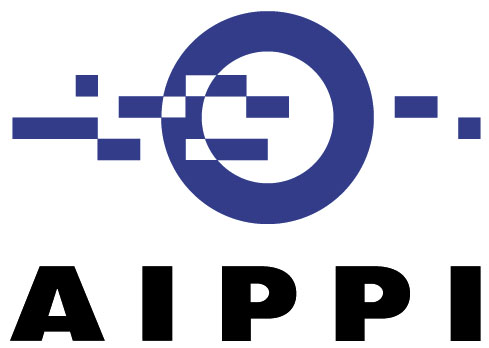 Octrooien, bekende merken, duur van het auteursrecht, schadevergoeding, plain packaging, Unified Patent Court.
Octrooien, bekende merken, duur van het auteursrecht, schadevergoeding, plain packaging, Unified Patent Court. Een bijdrage van Peter van Gemert en Wouter Pors,
Een bijdrage van Peter van Gemert en Wouter Pors, 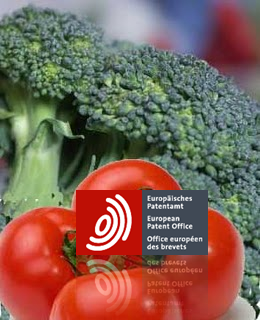 Zie eerder
Zie eerder  De Raad van Bestuur van de Europese Octrooiorganisatie, Gelet op het Europees Octrooiverdrag en artikel 33, eerste lid, onderdeel c, in het bijzonder, Op voorstel van de President van het Europees Octrooibureau, Gelet op het advies van de Commissie Octrooirecht, Besluit het volgende: Artikel 1
De Raad van Bestuur van de Europese Octrooiorganisatie, Gelet op het Europees Octrooiverdrag en artikel 33, eerste lid, onderdeel c, in het bijzonder, Op voorstel van de President van het Europees Octrooibureau, Gelet op het advies van de Commissie Octrooirecht, Besluit het volgende: Artikel 1 Prejudiciële vragen gesteld door High Court of Justice, Chancery Division, Patents Court (Verenigd Koninkrijk). Zie eerder IEF
Prejudiciële vragen gesteld door High Court of Justice, Chancery Division, Patents Court (Verenigd Koninkrijk). Zie eerder IEF  Amerika. Octrooirecht. Contractenrecht. Royalties. Kimble (uitvinder van een spiderman-speelgoed) verliest de voordelen van de in 2001 gesloten licentieovereenkomst.
Amerika. Octrooirecht. Contractenrecht. Royalties. Kimble (uitvinder van een spiderman-speelgoed) verliest de voordelen van de in 2001 gesloten licentieovereenkomst. by Jochen Buehling , for Kluwer Patent Cases The Federal Court of Justice held that under the specific circumstances of the case it was likely that a service manual regarding flow meter technology had been available to third parties. The Court considered as decisive the agreement between the party supplying the manual and the recipient. According to the Court it is relevant whether the parties agreed upon confidentiality either expressly or implicitly or whether it was to be expected under the circumstances that the recipient would keep the information confidential.
by Jochen Buehling , for Kluwer Patent Cases The Federal Court of Justice held that under the specific circumstances of the case it was likely that a service manual regarding flow meter technology had been available to third parties. The Court considered as decisive the agreement between the party supplying the manual and the recipient. According to the Court it is relevant whether the parties agreed upon confidentiality either expressly or implicitly or whether it was to be expected under the circumstances that the recipient would keep the information confidential.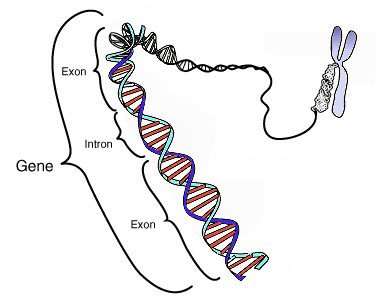 by Jochen Buehling , for Kluwer Patent Cases According to the law on employee inventions, the inventor is entitled to information about all income generated by the employer from third parties in exploiting the invention. This information is the basis for claims of the employees against the employer for compensation. The Court confirmed the decisions of the lower courts and held that the income of the employer comprises all financial benefits related to the employees’ invention and its exploitation. This includes not only payments made to the employer but also other benefits such as patent protection.
by Jochen Buehling , for Kluwer Patent Cases According to the law on employee inventions, the inventor is entitled to information about all income generated by the employer from third parties in exploiting the invention. This information is the basis for claims of the employees against the employer for compensation. The Court confirmed the decisions of the lower courts and held that the income of the employer comprises all financial benefits related to the employees’ invention and its exploitation. This includes not only payments made to the employer but also other benefits such as patent protection. by Jochen Buehling , for Kluwer Patent Cases Although the right of the main licensee to use the invention automatically fell back to the licensor upon the licensee’s insolvency, the Court held that the sublicensee enjoys protection of succession and that the sublicense continued to exist despite the termination of the main license.
by Jochen Buehling , for Kluwer Patent Cases Although the right of the main licensee to use the invention automatically fell back to the licensor upon the licensee’s insolvency, the Court held that the sublicensee enjoys protection of succession and that the sublicense continued to exist despite the termination of the main license.  by Thorsten Bausch Hoffmann Eitle and Bernd Kröger. A combination of two pharmaceutical ingredients, i.e. leflunomide and teriflunomide is to be considered obvious if the person skilled in the art uses an obvious process to obtain leflunomide that automatically results in – even with a certain delay – both components due to a chemical reaction.
by Thorsten Bausch Hoffmann Eitle and Bernd Kröger. A combination of two pharmaceutical ingredients, i.e. leflunomide and teriflunomide is to be considered obvious if the person skilled in the art uses an obvious process to obtain leflunomide that automatically results in – even with a certain delay – both components due to a chemical reaction. by Jochen Buehling , for Kluwer Patent Cases The Court held that a lack of impartiality of a court-appointed expert can be assumed if the expert maintains a close economic relationship with one of the parties. This is not necessarily so where the expert was engaged by a third party that maintains a consulting relationship with one of the parties.
by Jochen Buehling , for Kluwer Patent Cases The Court held that a lack of impartiality of a court-appointed expert can be assumed if the expert maintains a close economic relationship with one of the parties. This is not necessarily so where the expert was engaged by a third party that maintains a consulting relationship with one of the parties.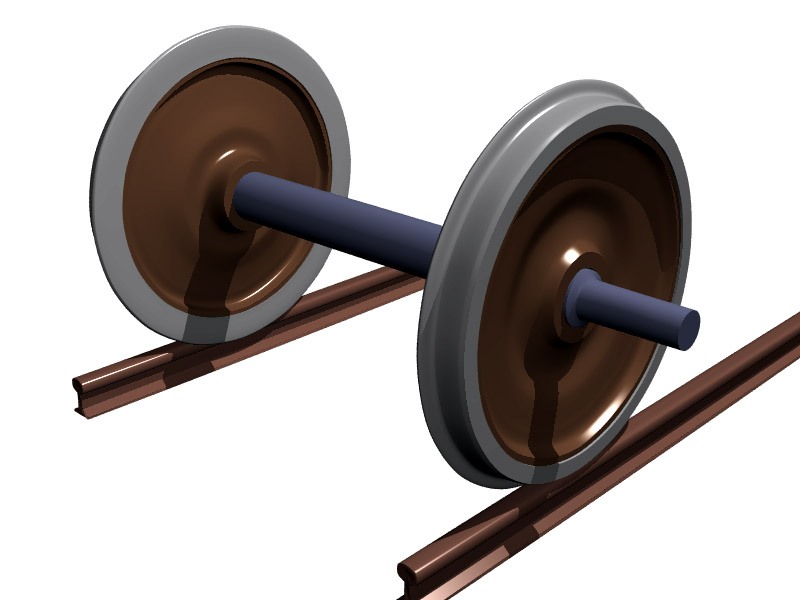 by Jochen Buehling , for Kluwer Patent Cases This decision deals with a court order to obtain an expert opinion in a nullity appeal proceeding subject to the new procedural rules that apply to nullity actions filed since October 1, 2009. Due to revised rules in nullity appeal proceedings, as a general rule, the appeal court shall decide on legal questions only, and not questions of fact such as expert opinions. However, the Court held that regarding facts relevant for novelty or inventive step it, the appointment of a court expert to clarify the factual background is still admissible, even if the relevant facts were already a subject in the first instance proceedings.
by Jochen Buehling , for Kluwer Patent Cases This decision deals with a court order to obtain an expert opinion in a nullity appeal proceeding subject to the new procedural rules that apply to nullity actions filed since October 1, 2009. Due to revised rules in nullity appeal proceedings, as a general rule, the appeal court shall decide on legal questions only, and not questions of fact such as expert opinions. However, the Court held that regarding facts relevant for novelty or inventive step it, the appointment of a court expert to clarify the factual background is still admissible, even if the relevant facts were already a subject in the first instance proceedings.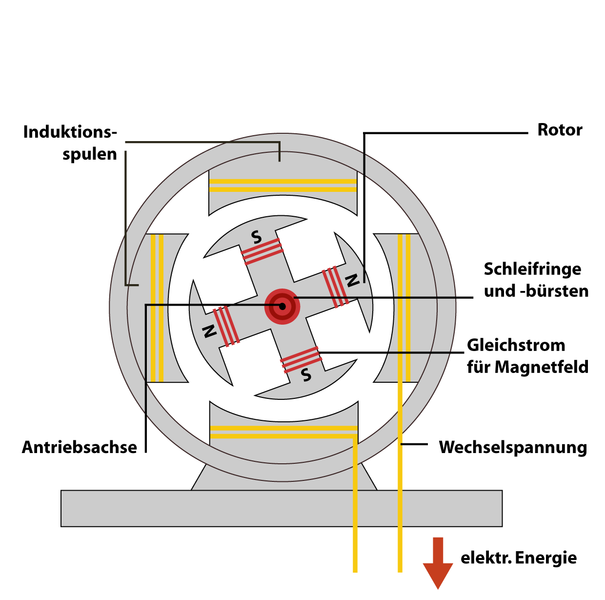 by Jochen Buehling , for Kluwer Patent Cases The Appeals Court held that an argument that was not raised in first instance proceedings, shall not be considered a new matter, and consequently be dismissed, if it only further specifies or clarifies the line of argumentation in first instance. On the other hand, f the plaintiff refers to the specifics of a technical teaching disclosed in prior art for the first time at the appeal stage in order to support a nullity attack, it shall be considered a new matter, even if this prior art was already filed in first instance.
by Jochen Buehling , for Kluwer Patent Cases The Appeals Court held that an argument that was not raised in first instance proceedings, shall not be considered a new matter, and consequently be dismissed, if it only further specifies or clarifies the line of argumentation in first instance. On the other hand, f the plaintiff refers to the specifics of a technical teaching disclosed in prior art for the first time at the appeal stage in order to support a nullity attack, it shall be considered a new matter, even if this prior art was already filed in first instance. by Jochen Buehling , for Kluwer Patent Cases Under the doctrine of equivalents, a patent does not convey protection for all options disclosed in the broader patent description if these options are not specifically included in the patent claims.
by Jochen Buehling , for Kluwer Patent Cases Under the doctrine of equivalents, a patent does not convey protection for all options disclosed in the broader patent description if these options are not specifically included in the patent claims.






















